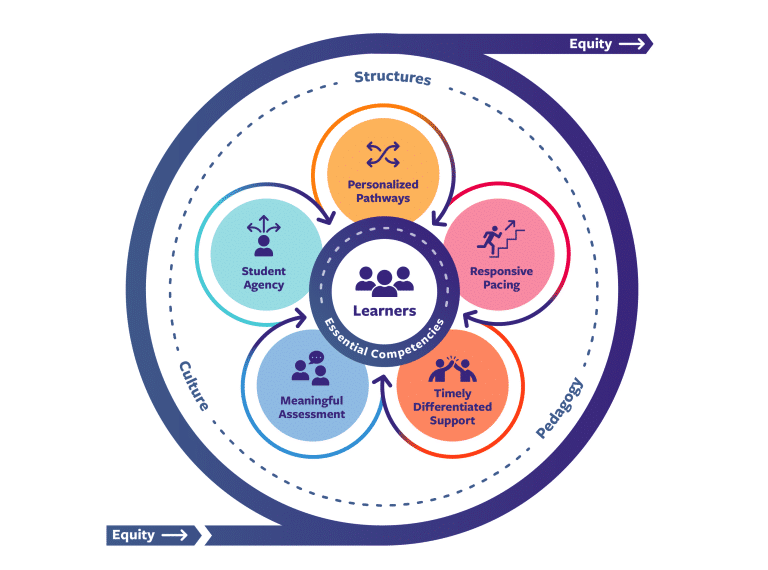November 6, 2024

In April 2024 we created a new graphic representation of the Aurora Institute’s definition of Competency-Based Education (CBE). The goal of the graphic is to show the relationship between the seven elements of the CBE definition. Like the definition itself, the graphic has undergone several iterations based on feedback from people in the CBE field.
Creating a coherent and equitable CBE system requires an inclusive process and a learning orientation in which all participants – educators, students, families, community partners, and policymakers – provide leadership and build capacity to transform school culture, structures, and pedagogy.
From the Blog
September 26, 2025
Thinking Ahead: AI in Math Education
August 22, 2025
A Garden Grows in Greenup: Rethinking Learning, Accountability, and Community Connection
July 23, 2025
Impact of Recent Supreme Court Ruling on US Department of Education Staffing Cuts on Students and Families: An Update from FullScale
July 18, 2025
Reimagining School Starts with Reclaiming Time
July 17, 2025
Call for Effectiveness Research on Competency-Based Education
CompetencyWorks Resources
All CompetencyWorks Resources
The History of CompetencyWorks
CompetencyWorks was founded in 2012 by Susan Patrick, former President & CEO of The Aurora Institute, and Chris Sturgis of LearningEdge (formerly of MetisNet). The initiative was designed to focus on knowledge-sharing and on field-building to create opportunities for the voices of innovators to shape the field. Working across the field, early activities included creating a working definition of competency-based education, supporting networks of innovators and new organizations in the field, establishing a focus and strands on competency-based education at the Symposium, and developing and disseminating knowledge through the CompetencyWorks website, wiki, papers, blog posts, and webinars.
As the field has developed, the role of CompetencyWorks has expanded to include describing the work of innovative districts in more depth, identifying and responding to questions and emerging issues from the field, providing light coordination across diverse organizations in the field, hosting briefings for stakeholders (e.g., policymakers, funders, district leaders, and organizations), providing policy development and advocacy, and intervening on issues that are creating vulnerability or confusion within the field.